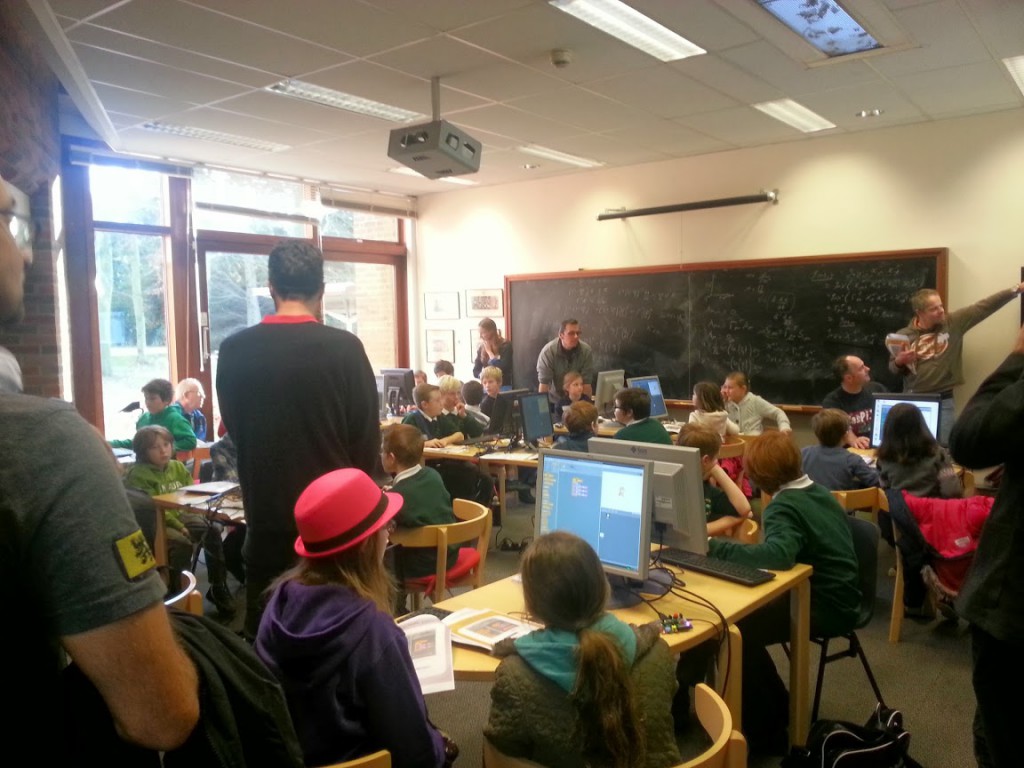
Just launched today, the Pibrella is a simple GPIO add-on board for the Pi. It has on-board the following:
- 1 each of Red, Amber and Green LEDs.
- A buzzer.
- A button.
- Protected input/outputs broken out to female headers.
- It’s purple. Many great things are purple.
- I2C bus is broken out, although you’ll have to add pins yourself for that.
It also comes pre-assembled which means you don’t need to worry about soldering anything!
We used these for our workshop at the December Cambridge Raspberry Jam during which the kids used ScratchGPIO to program a traffic lights sequence.

The Pibrella.com website contains a simple Python example and instructions on how to download the pibrella library. There’s not loads of documentation yet, but I’m sure that will come soon and the beauty of the Pibrella is that it’s very simple and just a few examples will get kids started in no time.
By giving protected inputs/outputs, the Pibrella is also protecting your Pi (hence the name).
It only costs £10 (plus P&P) and is ideal for classroom use (because of the functionality and the protection it affords) – I can thoroughly recommend it and give it a hearty 9.5/10. Here’s another recommendation from Darren Christie who borrowed the CamJam boards for a CAS event.
You can program the Pibrella from ScratchGPIO, as I mentioned before, Python, C (see Gordon Henderson’s page) or any other language that can control the GPIO.
You can find out more about the board from pibrella.com and you can buy it from Pimoroni or Cyntech.






